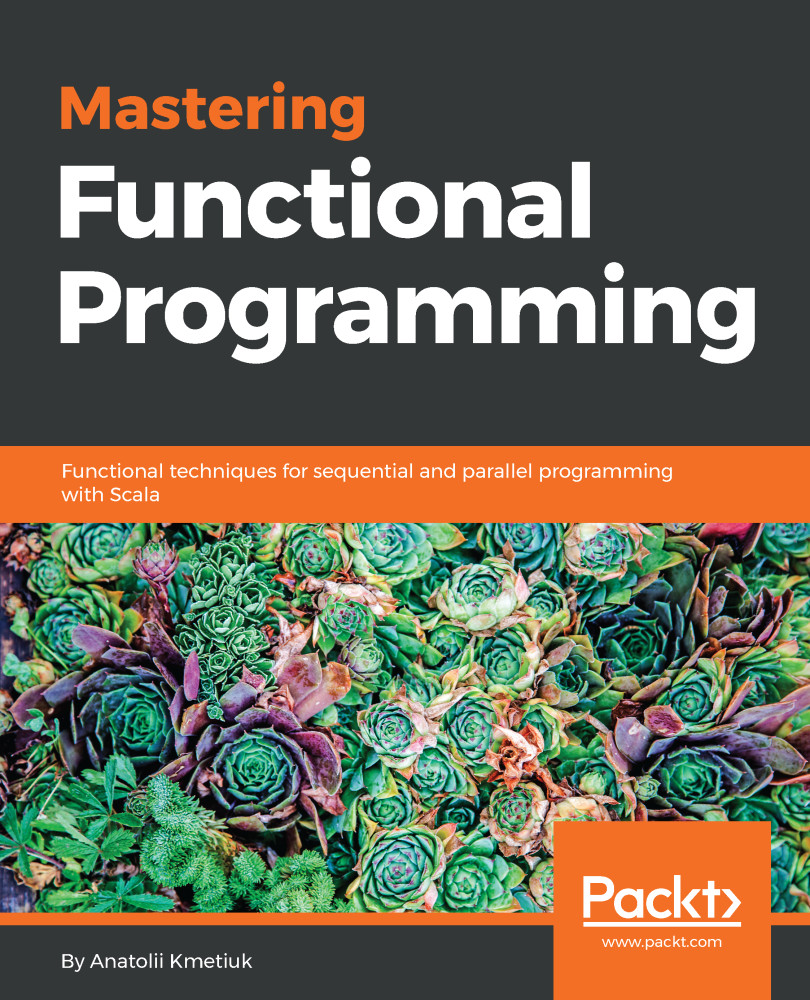- The first order reality is the reality of their business domain. The reality of the business domain is the reality in which the programming is solving their business task. The second-order reality is the reality of writing and running a program.
- It provides a set of techniques to abstract away the phenomena of the second-order reality. First, you need to identify a repeating phenomenon. Then, you need to create a data structure to abstract away this phenomenon. The idea is to abstract away the phenomena by describing them, without actually making them happen.
- The control over how the program runs and how its codebase is structured. If left without control, the complexity of the second-order reality can overwhelm you and cause mental load.
-
Book Overview & Buying

-
Table Of Contents

Mastering Functional Programming
By :

Mastering Functional Programming
By:
Overview of this book
Functional programming is a paradigm specifically designed to deal with the complexity of software development in large projects. It helps developers to keep track of the interdependencies in the code base and changes in its state in runtime. Mastering Functional Programming provides detailed coverage of how to apply the right abstractions to reduce code complexity, so that it is easy to read and understand.
Complete with explanations of essential concepts, practical examples, and self-assessment questions, the book begins by covering the basics such as what lambdas are and how to write declarative code with the help of functions. It then moves on to concepts such as pure functions and type classes, the problems they aim to solve, and how to use them in real-world scenarios. You’ll also explore some of the more advanced patterns in the world of functional programming such as monad transformers and Tagless Final. In the concluding chapters, you’ll be introduced to the actor model, which you can implement in modern functional languages, and delve into parallel programming.
By the end of the book, you will be able to apply the concepts of functional programming and object-oriented programming (OOP)in order to build robust applications.
Table of Contents (17 chapters)
Preface
 Free Chapter
Free Chapter
The Declarative Programming Style
Functions and Lambdas
Functional Data Structures
The Problem of Side Effects
Effect Types - Abstracting Away Side Effects
The Idea of the Type Classes
Basic Type Classes and Their Usage
Libraries for Pure Functional Programming
Patterns of Advanced Functional Programming
Introduction to the Actor Model
The Actor Model in Practice
Use Case - A Parallel Web Crawler
Introduction to Scala
Assessments
Other Books You May Enjoy
